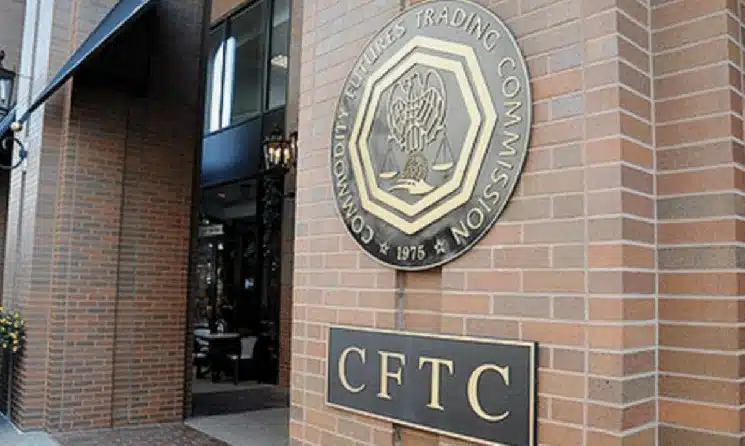The Commodity Futures Trading Commission (CFTC) has claimed that virtual currencies like bitcoin are commodities in a recent lawsuit against a former Deutsche Bank officeholder. By classifying cryptocurrencies as commodities, the CFTC is asserting its authority over the burgeoning industry and signaling that digital currencies will be subject to increased regulator scrutiny in future.
The lawsuit filed by the CFTC against My Big Coin Pay Inc., a cryptocurrency and wallet service provider, and its founder, Randall Crater, is the latest salvo in the ongoing debate over whether regulators should have jurisdiction over digital currencies. In the complaint, the CFTC alleges that Crater and My Big Coin Pay defrauded more than $6 million from its customers by offering a platform that was riddled with errors and misrepresentations.
Crater and his team purportedly provided misleading promotional materials to attract investors, promising high rates of return on their cryptocurrencies. According to the CFTC, these claims were based on unsupported promises, and the My Big Coin platform was “neither functional nor technologically feasible.”
If the CFTC’s claim that cryptocurrencies are commodities is adopted in court, it could represent a significant milestone for the industry. In particular, it would lay the groundwork for increased oversight and regulation of digital currencies in the United States.
While the CFTC’s classification may be good for the health and growth of the cryptocurrency market, it begs the question of what it means for this relatively young and unregulated industry moving forward. Will digital currencies be considered commodities like gold and oil, or will they be viewed as securities, subject to even greater regulatory scrutiny?
Another potential implication of the CFTC’s claim is that exchanges dealing with crypto-assets will be classified as “commodity exchanges” and subject to the jurisdiction of the commission. This would require existing cryptocurrency exchanges to register with the CFTC and comply with its rules and regulations, potentially leading to the closure of non-compliant exchanges.
In effect, the CFTC’s assertion that cryptocurrencies are commodities could mean greater regulation and stability for the industry in the long run, potentially eliminating bad actors and reducing the likelihood of fraud.
The lawsuit against My Big Coin Pay is not the first time the CFTC has intervened in the digital currency space. In 2015, the agency also charged a cryptocurrency trading platform, Coinflip, with violations of federal law in what was the first enforcement action against a bitcoin trading platform.
In that case, the CFTC also claimed that digital currencies like bitcoin were commodities, and therefore, the commission had jurisdiction over the platform. Coinflip eventually reached a settlement with the CFTC, setting a precedent for other cases involving cryptocurrency platforms.
While the CFTC has taken a proactive stance towards regulating cryptocurrencies, other federal agencies, such as the Securities and Exchange Commission (SEC), have been more cautious. In a January 2021 statement, the SEC clarified that it would treat digital assets as securities only if they fit the definition of “investment contracts” under federal law.
As a result, it remains unclear how other regulators will treat cryptocurrencies moving forward. It is possible that agencies like the SEC will defer to the CFTC’s classification of digital currencies as commodities, or they may develop a separate regulatory framework specifically for digital currencies.
Given the rapid pace of development in the cryptocurrency industry and the increasing number of investors choosing to allocate funds to digital assets, it is clear that a coherent regulatory framework is necessary for the continued growth and success of the market.
Increased regulation may also serve as a deterrent against fraudulent schemes and scams that have become all too common in the cryptocurrency sphere. By taking a firm stand on the classification of digital currencies, the CFTC is sending a clear signal to would-be fraudsters that their actions will not go unnoticed by authorities.
Ultimately, the extent of the CFTC’s authority over cryptocurrencies will depend on the outcome of its lawsuit against My Big Coin Pay and future legal challenges. Should the courts side with the agency’s classification of digital assets as commodities, it could signal a new era of regulation for the cryptocurrency market in the United States – one in which investors can have greater faith in the stability and legitimacy of their investments.
In conclusion, the Commodity Futures Trading Commission’s recent claim that cryptocurrencies are commodities sets the stage for increased regulatory oversight of the industry. While this classification could pose challenges for some market participants, it could also foster a more stable and secure environment for investors in the long run. As the cryptocurrency market matures and becomes more mainstream, a clear and consistent regulatory framework will be crucial for its continued success.


